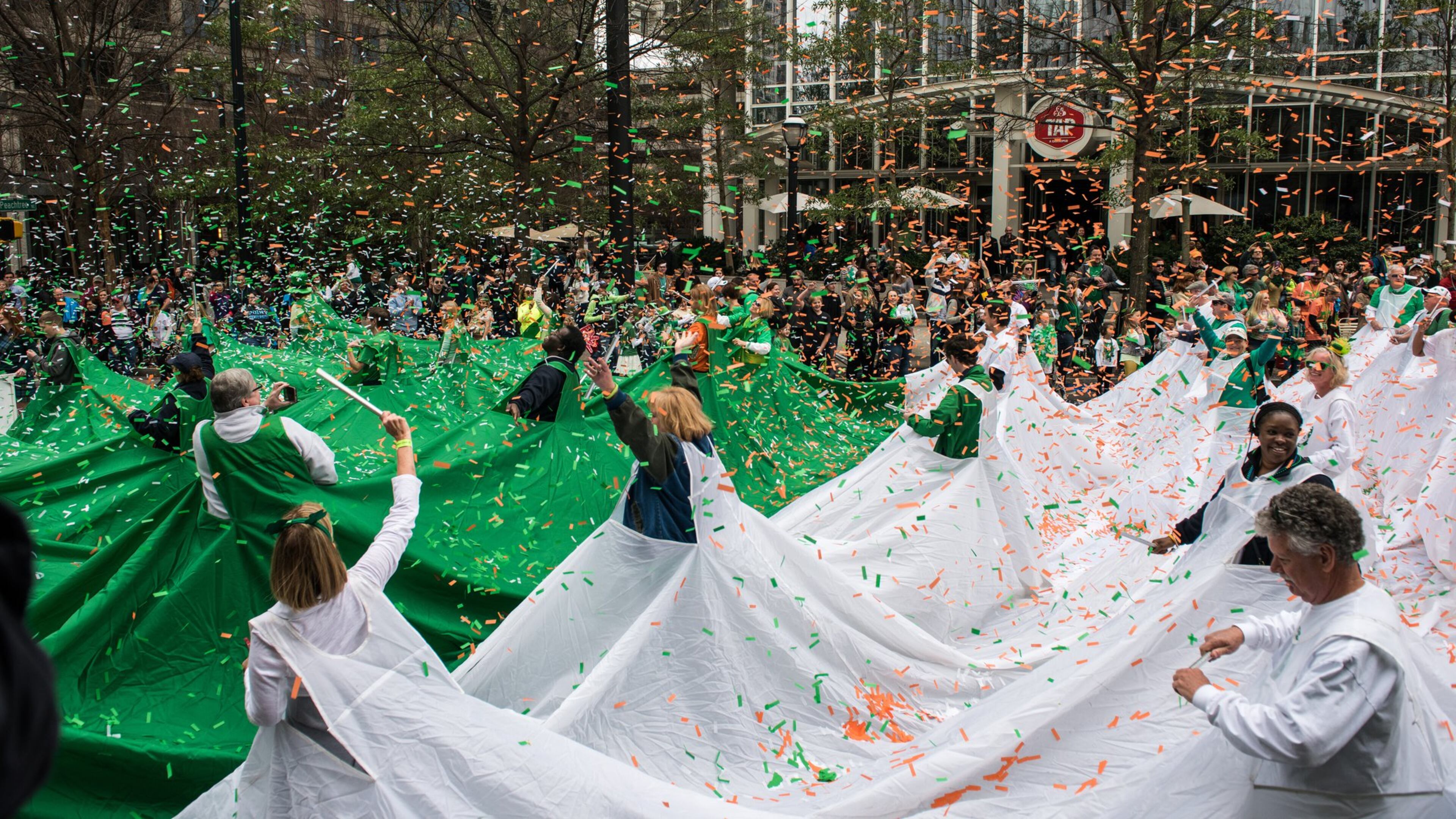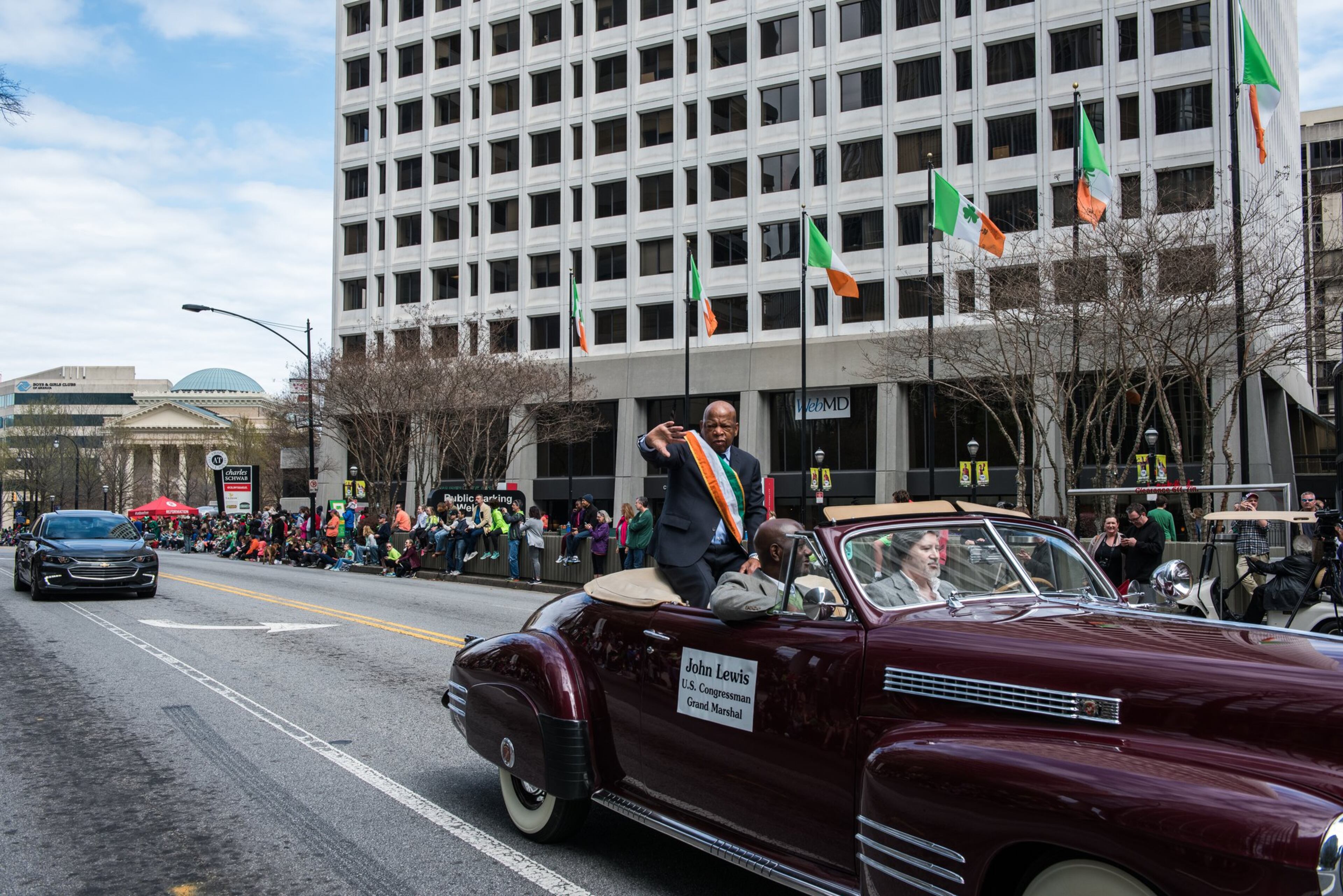OPINION: On St. Patrick’s Day, we’re all immigrants

Each year, the group that runs Atlanta’s St. Patrick’s Day parade puts on a breakfast for sponsors and local dignitaries on the Saturday of the parade. I usually attend and this year I sat at the same table as U.S. Rep. John Lewis, grand marshal of the 2017 parade.
It’s typically a fun and light-hearted affair, as the attendees are welcomed by the Irish consul in Atlanta and by numerous politicians. Student musical groups play Irish tunes and a traditional Irish breakfast is served.
But this year, one understated and serious young woman stole the show. And she wasn’t even Irish.
Let me explain.
The parade committee also sponsors a student essay contest on “The Meaning of St. Patrick’s Day.” The writing contest is overseen by James M. Flannery, the Winship Professor Emeritus of the Arts and Humanities at Emory University. He’s also the director of the W.B. Yeats Foundation, named after the famous Irish poet.
Students are asked to submit a thousand-word piece and consider historical, religious, sociological, cultural and other perspectives.
This year’s student winner was called to the microphone. She was introduced by only her first name, Dariana. The crowd was told that her last name was being withheld to protect her family.
She read her opening paragraph, which said in part:
“While most Americans associate St. Patrick’s Day with joy and revelry, the bitter reasons why many Irish traveled here recall some of the darkest times in their long history.”
She went on.
“Both my parents came to the United States as teenagers. My mother was only 16 while my father was 17, the same ages many Irish immigrants were when they left their homeland far behind as they crossed the Atlantic in search of a place where a decent living wage could be earned in the land of opportunity. The Irish immigrants and my parents hoped for better lives, a place where children could be brought into the world without their parents fearing there would not be enough food to feed these children.”
By now most of us in the crowd, who were perhaps more used to pleasant conversation and a mimosa or cup of Irish coffee at this event, hung on Dariana’s every word.
She told her father’ story.
“My father’s family had a farm in Mexico, yet my father felt compelled to leave Mexico for the United States. My father was one of 12 children … . The farm could not support so many children, so as a teenager, my father followed a brother to America in hopes of living in a land where they both could find jobs that not only supported them, but also could give them enough extra money to send back home.”
And then we got to know her mother, who, like her father, lives in the United States without immigration documentation.
“My mother, also from a large a family, grew up poor where often there was barely enough money to buy food. My mother remembers times when there was only one pot of beans for the entire family to share for their daily meal. My mother knew she had to find her way to a place where she would have an opportunity to earn money, money she could use to support herself as well as share with her family.”
With a maturity beyond her 16 years of age, Dariana then connected her immigrant story to that of the many people of proud Irish heritage in the room.
"Irish immigrants came here legally, not exactly welcomed, but nonetheless allowed to enter America when this country was young and needed people willing to do the kind of work no one else wanted to do — hard labor, digging canals, building roads, working in factories, and taking care of the houses and children of the rich. Today's immigrants do many of these same jobs, but the law is much less open. Both the Irish immigrants and my parents suffered extreme discrimination from those who did not want them in the country because they were Catholic, because they were poor, and simply because they were different."
By now, she had some at the breakfast in tears as she gave the crowd a look inside her life.
"History gives us much to be proud of, but it also consists of many hidden stories that we would like to forget. Present-day American politics has a lot to say about immigrants and refugees, and it has come to the point that immigrants seeking refuge in a country founded on the ideals of freedom are no longer welcomed inside America's borders. Families wonder what will happen to their American-born children if one or both parents are deported. My friends, family, and neighbors are so worried about the possibility of being detained and deported, they no longer drive to work or the grocery store."
Dariana is a junior at a private school that provides a college prep curriculum for students from poor families. Leaders of the school asked me to not identify it. They said they feared it would expose students’ family members to possible deportation or other difficulties related to their immigration status.
But they are proud of what their student had to say at the breakfast, and of her composure before the crowd.
Dariana, in few short minutes, grabbed her audience, and — through her essay — demanded that we consider our own views on the nation’s and Georgia’s immigration policy. She took the occasion that celebrates America’s most familiar and feel-good immigrant story and reminded us that we’ve lost sight of much of the ugly history in that story.
But most of all, she provided perspective beyond politicians and television talking heads, and she reminded us that despite our background, we are more alike than different.
As Dariana put it:
“The celebration of St. Patrick’s Day should be one in which all immigrants, but especially the Irish, are given the chance to connect with each other and remember the pain and grievances that many suffered.”



